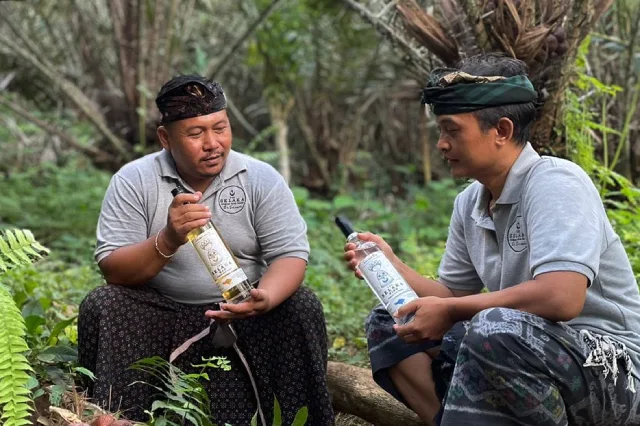Things to Do in Bali
Bali’s Challenges on the Road Ahead
Bali has grown in the last two decades at a very fast pace, not only due to the growing tourism sector, although it plays a major role. The island’s population is above four millions, and it grew by 80.000 every year before the pandemic. These new residents need housing, water, food, transport and of course, jobs. Many young Indonesians from neighbouring islands come here to find a better life than what the future holds for them back home in their rural villages.
Since land prices have skyrocketed in the main touristic areas, investors move towards more remote areas contributing to the economy and creating jobs. In the last couple of years, many new restaurants, villa projects and hotels have opened their doors. Of course, all this outs pressure on the fragile eco-system of this beautiful island.
What Can We Do?
At the end, a traveller is a consumer, and can take responsible “green” choices to reduce the “footprint”. Consumers can decide where and how to spend, where and what to eat, where to stay, what to buy – which businesses to value and support and which companies to avoid. There are a few easy things a traveler can keep in mind and follow when visiting Bali:
10 Easy Actions to Support Bali
Conserve Fresh Water. Even though there is a lot of rainfall in Bali, the water supply is still at threat – particularly during the dry season. Taking a short and quick shower has a direct positive impact.
Bring biodegradable cosmetics with you. The grey water and sewage water does very often reach the rivers and ultimately the sea. Biodegradable cosmetics might be a bit more expensive but you create an incredible positive impact right away.
It sounds logical – and it is. Switching off the Air-con and the lights is a great way to save eergy and therefore resources. And even though many hotels have the key-card system where only with a key-card the electricity is activated, many travelers simply leave the key in the slot and let the AC and appliances run.
Washing and dry-cleaning bedsheets and towels in hotels is a massive undertaking that puts a lot of pressure onto the eco-system. High Energy consumption for washing and drying, the release of bleach and detergents into the water system, and it takes a lot of water overall.
Most hotels implement a “Save the Earth” program, where guests can actively decide and control, when towels and bedlinen are washed. However, many guests simply forget which then forces the housekeeping to change the linen and towels anyway. Please follow the hotel’s “change the bedsheet & towel” directives.
The many souvenir shops lining the streets of Bali rarely have fixed prices for their products. Bargaining to get a fair price is part of the charm and can be fun. However, the economic pressure on these vendors, particularly after a 2 years shut-down of their businesses, is immense. So bargaining very hard can indeed lead to a very low price, sometimes even paying less, than what the vendor paid for. But still they agree to sell, just to get some much needed cash for the day.
One could assume that this is not necessary to mention anymore. However, some travellers seem to forget that leaving trash on the beach or empty beer bottles on the sidewalk, or snipping the cigarette bud literally anywhere should be a no-go.
Travellers are enjoying the hospitality of a country where the law enforcement is less than at home and where therefore rules can easily be broken without facing any consequences. This circumstance seems to encourage mostly younger travellers to forget that this should be a behaviour of the past.
An estimated 30 million plastic water bottles end up in the landfills in Bali every year.
Please bring your re-usable water bottle from home. If you don’t have one, they can easily be purchased in Bali. Refill from the larger water bottles if you must, bit often yu can find in hotels, guest houses or even restaurants the option to refill your bottle providing water dispensers. Great Impact!
Somehow it became fashionable to hire l(very) loud motorbikes which creates a lot of noise pollution that can so easily be avoided. Tourists and Residents in Seminyak, Canggu and other popular areas are heavily affected. Please rent a normal scooter or motor bike and keep some level of serenity for everyone.
Most of the trash in Bali ends up in landfills, recycling is still rarely happening. So anything you bring to Bali and don’t take back, will weigh on the environment. Particularly empty batteries for example.
Clothes and shoes you don’t need anymore but can still be used can be donated to people in need here in Bali. If you wish to leave something behind that is still in ok condition, you can ask the housekeepers if they can give it to someone in need. Most of them will be very happy to take it.
Many businesses in Bali take environmental concerns and responsible businesses practices seriously. Many stopped using plastic straws, pay fair wages and taxes, use organic products, separate and recycle trash, stopped using small plastic shampoo bottles, etc. Choosing those establishments over others, not only supports them and awards their efforts but also sends a message to the businesses that are less concerned that it is commercially beneficial to join the green movement.
You will know them when you see them for sure.
If you stay in hotels or restaurants where plastic straws are still used, or in hotels where environmental concerns are not taken seriously and for example the small shampoo bottles are still used, you can always leave a review and point these things out. This will definitely have an impact.
Likewise, if you are a guest and you witness positive environmental measures, it’s always nice to point these out in a review which makes the owners and managers aware, that their efforts are noticed and valued.
Your Impact
Where you spend your travel budget is a message business owners do understand. They can see it in their balance sheet, that implementing more green measures is ultimately a smart commercial decision, even though it will cost them to implement and invest in “operating green(er)
If consumers choose more consciously, then it is not even even necessary to convince business owners of a higher cause or argue a case for a better world.
We can decide to value and support businesses that
- implement recycling efforts
- install proper wastewater treatment
- implement energy-saving efforts
- stop using and distributing plastic bags, plastic straws
- use more eco-friendly “to-go”-packaging
- no plastic bag regulations
- stop using plastic bottled amenities
- install in solar equipment
- pay fair salaries and obey labour regulations
Price Tag
All these efforts cost something for any business owner, and in a highly competitive business environment like Bali not all owners feel motivated to invest in “green”.
For the traveler it could mean to pay sometimes a bit more for a beer, a salad, or a shirt because running an environmentally friendly business is (still) more expensive than not caring where the garbage goes or obeying labour regulations.
Are you willing to contribute?
Bali needs to become greener if it wants to survive and not go down in glory. Naturally not everybody will be concerned about the future of Bali and the preservation of this beautiful island. There are enough residents and tourists who don’t care. Sometimes because of greed, sometimes because they still fight for survival, sometimes because of lack of knowledge and education.
But we do not need nor convince everybody. Scientists estimate that only 10-15% of a group in a business-driven environment need to change to have a big enough impact on the others to initiate systemic changes.
So let’s be part of this 15%. Let’s become part of the solution and not be part of the problem.
























